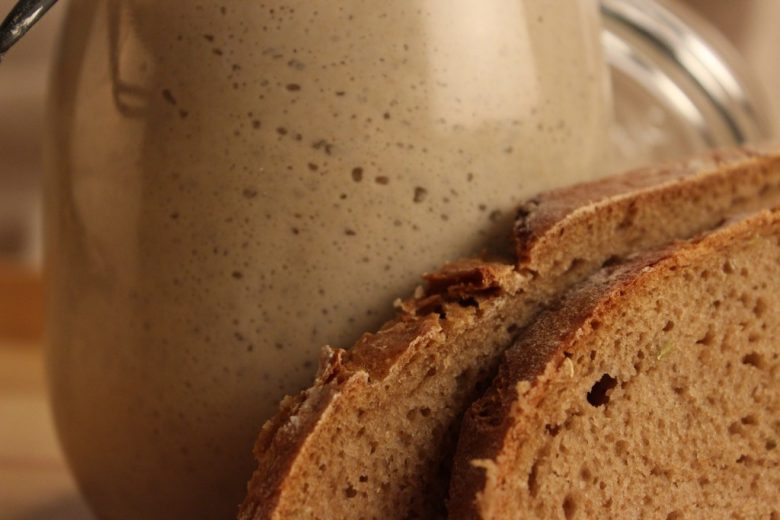Berlin Quick Sour
The Berlin quick sourdough process (after Pelshenke and Schulz, 1942) is one of the first single-stage sourdough processes. The high sourdough temperature favors the lactic acid increase, which is correspondingly found in a mild bread taste.
With this method you choose the fastest sourdough process. Bread-making can start after just 4 hours. The starter amount is 20% of the rye flour to be acidified. The sourdough temperature is 35°C and the hydration (TA) is 100% (200). 1-1.5% yeast, based on the total amount of flour, is added to the bread dough to help leaven it.
The amount of rye flour to be acidified is 60-100% for mixed wheat bread, 55-70% for mixed rye bread and 45-55% rye flour for rye bread.
This process is hardly widespread today. The reason lies in the less intense flavor and the problem of keeping the high sourdough temperatures constant. It only seems to be recommended for mixed wheat bread.
Example: Mixed Rye Bread
There is 1800g of bread dough mixed in a proportion of 30% wheat and 70% rye. This brings the amount of flour in this dough to about 1000g (the rest is water and other ingredients). The 1000g of flour is divided into 700g rye and 300g wheat flours. If we choose to sour 60% of the rye flour, of the 700g of rye flour 420g is used for the sourdough.
- 84g Starter (20% of the soured flour amount)
- 420g Water
- 420g Rye flour
Standing time: 3 hours, at a temperature of 35°C.
If the maturity time extended to 4 hours, the bread taste would then be more pronounced and flavorful. If the required sourdough temperature of 35°C cannot be maintained, the maturity time extends 15 minutes for every °C.
Important:
When the sourdough has reached maturity, a portion of the starter is removed and stored in a clean jar in the refrigerator until ready to use again.



